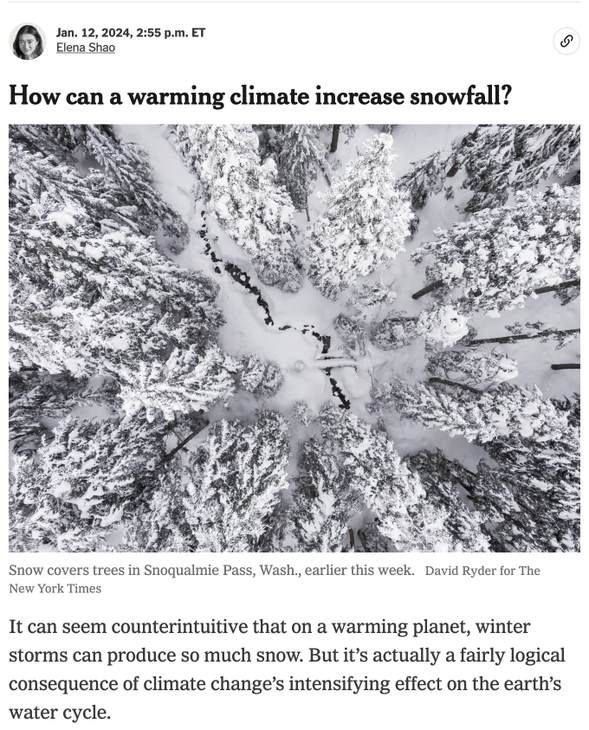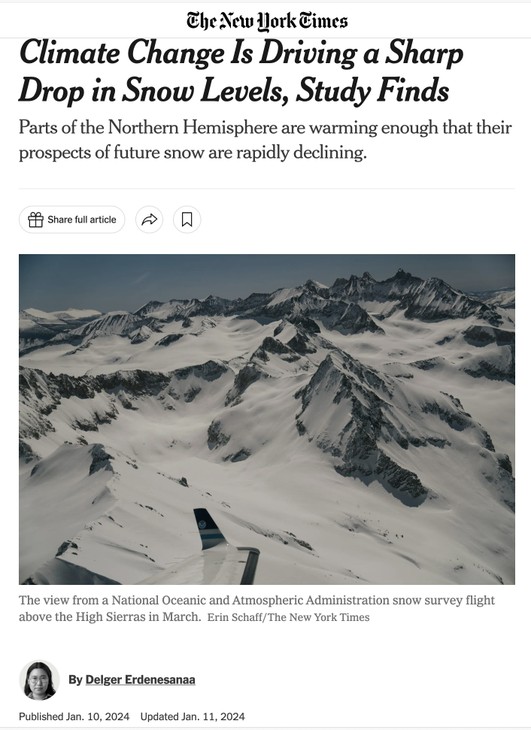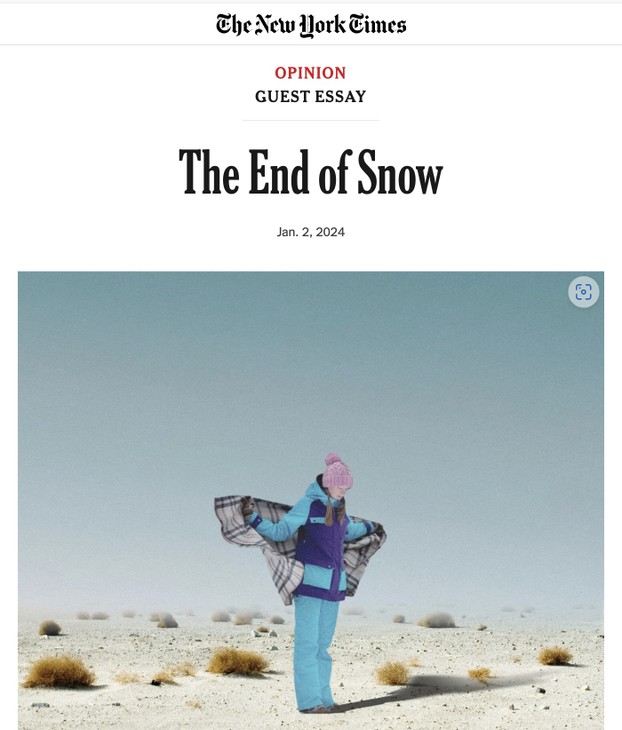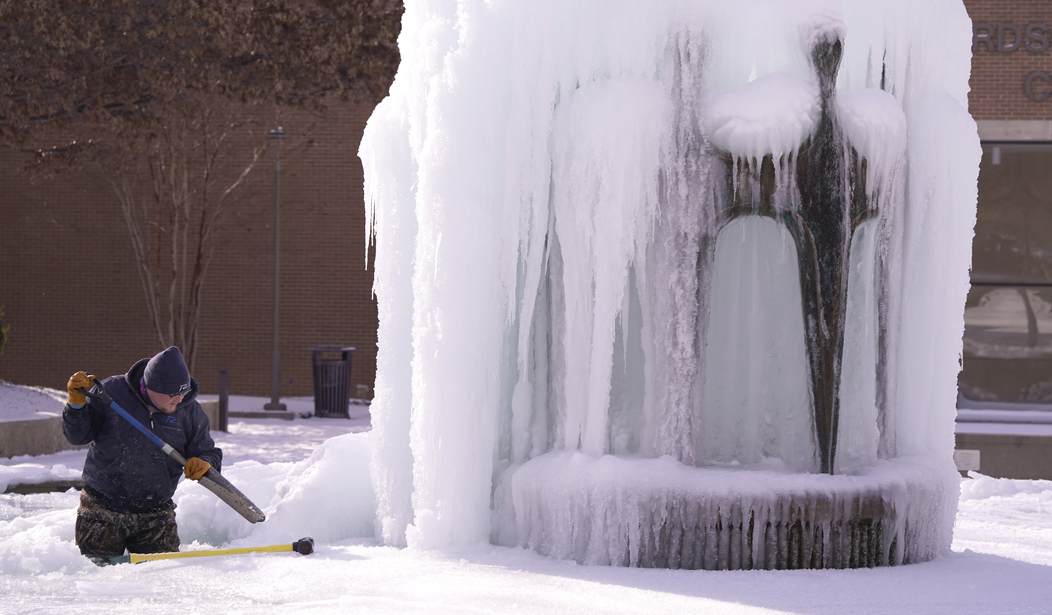Did it snow a lot in your neck of the woods?
Are you seeing less snow this year?
You may never see snow again, we predict.
Climate change means that too.
In the space of two weeks, the New York Times has stories that say climate change will end snow forever, reduce the amount of snow somewhat, or cause more snow than ever before.

My head hurts. Mostly because it is -6 degrees outside right now in Minneapolis, but the intellectual whiplash the New York Times is giving me doesn’t help.
Lest you think I am exaggerating, I am not. The Times had three stories separated by less than two weeks describing the relationship between climate change and snow, covering the entire range of possibilities save one: snowfall, on average, will remain the same.
Not that “the same” would mean much on human timescales. Climate never remains the same because there are so many interacting cycles. The complexity of climate is dizzying, and human beings are nowhere near the point where we understand the natural cycles, no less the interaction between what humans do and natural changes.

Unlike extreme skeptics, I don’t doubt that humans could do things that would impact the earth’s climate. Deforestation would certainly have an impact on a region, and it is conceivable that the very modest changes to the atmosphere’s composition might make a difference.
I don’t know, and neither does anybody else. Seriously, they don’t because the signal-to-noise ratio in measuring climate change is so awful. There are cycles within cycles within cycles in nature, having to do with solar radiance, the earth’s tilt, the albedo of the planet, wind patterns, ocean currents… We still haven’t a clear idea about why there was a medieval warm period and then a little ice age, which all happened in the past several hundred years.

Even the concept of the global temperature is pretty sketchy, and our data is extremely thin–especially once you go back a century or two. It is all guesswork and black magic.
Yet we keep getting absurd “the sky is falling” stories in the propaganda mills of the MSM. “The hottest year ever!”
Yeah, right. We are still in an ice age, guys. There have been periods when the poles were rainforests. Quit gaslighting us.
Scientists can’t even agree about whether or not there was a medieval warm period at all; was a purely European phenomenon, or global?
Check the temperature record!
Oh, wait…
There is nothing inherently implausible about the idea that human beings could have an effect on the climate–chances are that termites do, for instance. Plants do. Algae does. Volcanos do. Glaciers do. In a complex, chaotic system, it is likely that a zillion different variables do exist, although mostly, it all averages out.
Human beings have certainly increased the quantity of CO2 in the atmosphere, although it is unclear exactly how significant the change is compared to other, more significant fractions of the atmosphere. 99.9996% of the atmosphere is NOT CO2, and CO2 has been higher at points in the past, and life on Earth flourished during those times.
Plants love CO2. This is why they increase the levels to about 3x the current atmospheric concentration in greenhouses. The planet is greening because of the increase in CO2, although there is a point of diminishing returns–we just aren’t anywhere near that point.
The point is–we really don’t know. Hence the fact that The New York Times can print within the span of two weeks stories that predict more, less, or no snow due to climate change.
At least they are covering the bases, especially if the real point is to convince people that the solution this problem, as with every problem, is a global economy run by a technocratic elite who will make everything all right.
Just as they did with COVID-19.








Join the conversation as a VIP Member